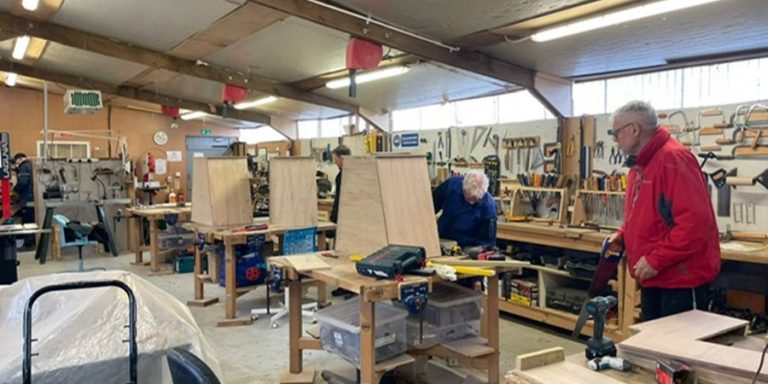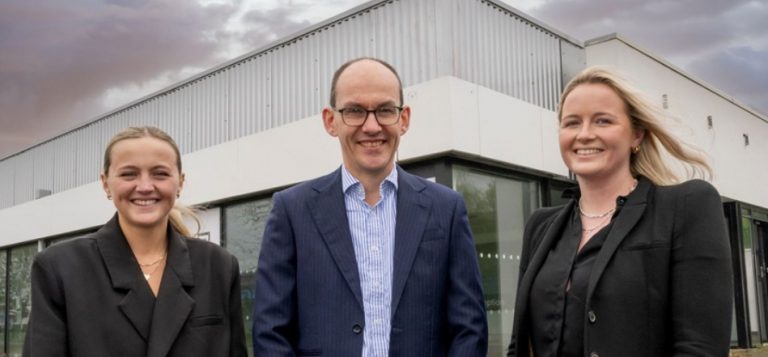The owners behind the landmark Skegness Gateway scheme have revealed a £151 million Flood Risk Resilience Fund (FRRF) as part of a raft of measures that will help defend the development and wider Skegness area from the impacts of flooding.
The plans, which have been collaboratively developed with East Lindsey District Council and the Environment Agency, have been more than 12 months in planning.
The news follows the approval of a Local Development Order (LDO) for the scheme in March, announced at an executive meeting of East Lindsey District Council in Horncastle.
Agreement was given on more than £300m in socio-economic benefits for the region, alongside new homes, jobs, a crematorium and supported living provision. A new TEC college was granted planning permission for the site in February 2023.
The unique FRRF scheme will operate via an ongoing management fee, associated with the 1,000 properties planned for the 336-acre site. A specialist estate management company will be formed alongside this, which will manage the financial model and take an active role in flood risk strategy on site.
A proportion of the money received from the Gateway properties will allow funding agreements to be setup between East Lindsey District Council (ELDC), the Environment Agency (EA) and other vested interest parties for ongoing defence management and flood risk reduction over the lifetime of the development.
Sue Bowser, of Croftmarsh, said: “The Gateway team take the issue of flooding very seriously. It’s one of the key reasons we have generated this funding, which contributes positively to schemes that maintain and mitigate against the risks posed by flooding and water management.
“We’ve worked hard to come up with a solution that not only protects our development, but also our wider home of Skegness, closely collaborating with the Environment Agency and East Lindsey District Council.
“Regenerating the area is hugely important to us as a fifth-generation family in the area, and we’re pleased to see the acceleration of a scheme that will bring new homes, jobs and greater prosperity to our region.”
According to the latest Climate Change Risk Assessment, an estimated 1.8m people are living in areas of the UK at significant risk of coastal, surface or river flooding.
In Skegness, the Gateway’s Flood Risk Assessment (FRA) identifies the coastline defending the project to be 13.8km, running from Burgh Sluice to the main drain outfall at Ingoldmells. Estimates from the Environment Agency put defence management for the next 100-year period, from Saltfleet to the Gibraltar Point coastline, as ranging between £15m per kilometre to £40m per kilometre.
The contribution enabled by the FRRF scheme could cover 27.0% of the defence management at the highest rate and 71.9% at the lowest rate, depending on the approach and measures taken to flood prevention efforts in the region.
Neil Sanderson, also of Croftmarsh, added: “We understand the flooding risks posed to coastal communities across the UK and want to be active in the role we can play in mitigation efforts.
“What we have here is a solution that is bespoke for our town, allowing regenerative efforts to flourish whilst contributing positively to flood defence strategies being undertaken by public sector organisations.”
As part of the Gateway’s flood prevention efforts, a series of flood education and evacuation programmes will also be undertaken by the estate management team, extending to new homeowners as well as the wider population of Skegness.
Raised ground and flood compensation areas are all part of the Gateway’s proposals, aiding flood prevention onsite.
Councillor Steve Kirk, East Lindsey District Council portfolio holder for coastal economy, said: “I am delighted we have been able to agree this significant investment and commitment to help protect this landmark development and the wider area from flooding for many years to come.
“The risk of flooding and the devastating impact it can have must always be taken extremely seriously, and working in partnership with transformational projects like this we can help make real improvements and additions that will safeguard Skegness and its residents and businesses for generations to come.”
Chris Baron, chair of Connected Coast, said: “It is great that this level of commitment is being made to support flood resilience as part of the Skegness Gateway. We have such a fantastic opportunity to invest and deliver transformational improvements for the area through all of our work, and doing this responsibly and respectfully of the environment is crucial.”












